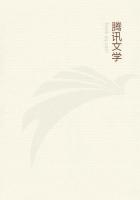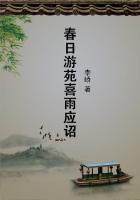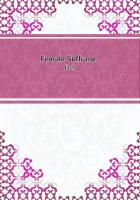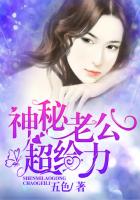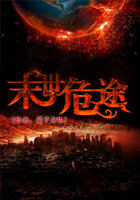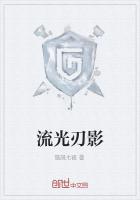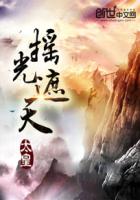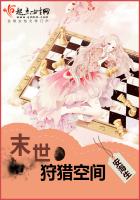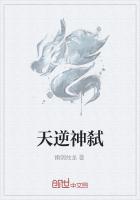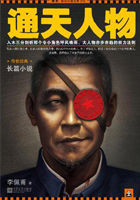I believe we are on the eve of a real revolution in English teaching,-- only it is a revolution which will not break the peace.The new way will leave an overwhelming preponderance of oral methods in use up to the fifth or sixth grade, and will introduce a larger proportion of oral work than has ever been contemplated in grammar and high school work.It will recognize the fact that English is primarily something spoken with the mouth and heard with the ear.And this recognition will have greatest weight in the systems of elementary teaching.
It is as an aid in oral teaching of English that story-telling in school finds its second value; ethics is the first ground of its usefulness, English the second,--and after these, the others.It is, too, for the oral uses that thesecondary forms of story-telling are so available.By secondary I mean those devices which I have tried to indicate, as used by many American teachers, in the chapter on "Specific Schoolroom Uses," in my earlier book.They are re-telling, dramatization, and forms of seat-work.All of these are a great power in the hands of a wise teacher.If combined with much attention to voice and enunciation in the recital of poetry, and with much good reading aloud BY THE TEACHER, they will go far toward setting a standard and developing good habit.
But their provinces must not be confused or overestimated.I trust I may be pardoned for offering a caution or two to the enthusiastic advocate of these methods,--cautions the need of which has been forced upon me, in experience with schools.
A teacher who uses the oral story as an English feature with little children must never lose sight of the fact that it is an aid in unconscious development; not a factor in studied, conscious improvement.This truth cannot be too strongly realized.Other exercises, in sufficiency, give the opportunity for regulated effort for definite results, but the story is one of the play- forces.Its use in English teaching is most valuable when the teacher has a keen appreciation of the natural order of growth in the art of expression: that art requires, as the old rhetorics used often to put it, "a natural facility, succeeded by an acquired difficulty." In other words, the power of expression depends, first, on something more fundamental than the art-element; the basis of it is something to say, ACCOMPANIED BY AN URGENT DESIRE TO SAY IT, and YIELDED TO WITHFREEDOM; only after this stage is reached can the art-phase be of any use.The "why" and "how," the analytical and constructive phases, have no natural place in this first vital epoch.
Precisely here, however, does the dramatizing of stories and the paper- cutting, etc., become useful.A fine and thoughtful principal of a great school asked me, recently, with real concern, about the growing use of such devices.He said, "Paper-cutting is good, but what has it to do with English?" And then he added: "The children use abominable language when they play the stories; can that directly aid them to speak good English?" His observation was close and correct, and his conservatismmore valuable than the enthusiasm of some of his colleagues who have advocated sweeping use of the supplementary work.But his point of view ignored the basis of expression, which is to my mind so important.Paper- cutting is external to English, of course.Its only connection is in its power to correlate different forms of expression, and to react on speech- expression through sense-stimulus.But playing the story is a closer relative to English than this.It helps, amazingly, in giving the "something to say, the urgent desire to say it," and the freedom in trying.Never mind the crudities,--at least, at the time; work only for joyous freedom, inventiveness, and natural forms of reproduction of the ideas given.Look for very gradual changes in speech, through the permeating power of imitation, but do not forget that this is the stage of expression which inevitably precedes art.
All this will mean that no corrections are made, except in flagrant cases of slang or grammar, though all bad slips are mentally noted, for introduction at a more favorable time.It will mean that the teacher will respect the continuity of thought and interest as completely as she would wish an audience to respect her occasional prosy periods if she were reading a report.She will remember, of course that she is not training actors for amateur theatricals, however tempting her show-material may be; she is simply letting the children play with expression, just as a gymnasium teacher introduces muscular play,--for power through relaxation.
When the time comes that the actors lose their unconsciousness it is the end of the story-play.Drilled work, the beginning of the art, is then the necessity.
I have indicated that the children may be left undisturbed in their crudities and occasional absurdities.The teacher, on the other hand, must avoid, with great judgment, certain absurdities which can easily be initiated by her.The first direful possibility is in the choice of material.It is very desirable that children should not be allowed to dramatize stories of a kind so poetic, so delicate, or so potentially valuable that the material is in danger of losing future beauty to the pupils through its present crude handling.Mother Goose is a hardy old lady, and will not suffer from thegrasp of the seven-year-old; and the familiar fables and tales of the "Goldilocks" variety have a firmness of surface which does not let the glamour rub off; but stories in which there is a hint of the beauty just beyond the palpable--or of a dignity suggestive of developed literature-- are sorely hurt in their metamorphosis, and should be protected from it.They are for telling only.

